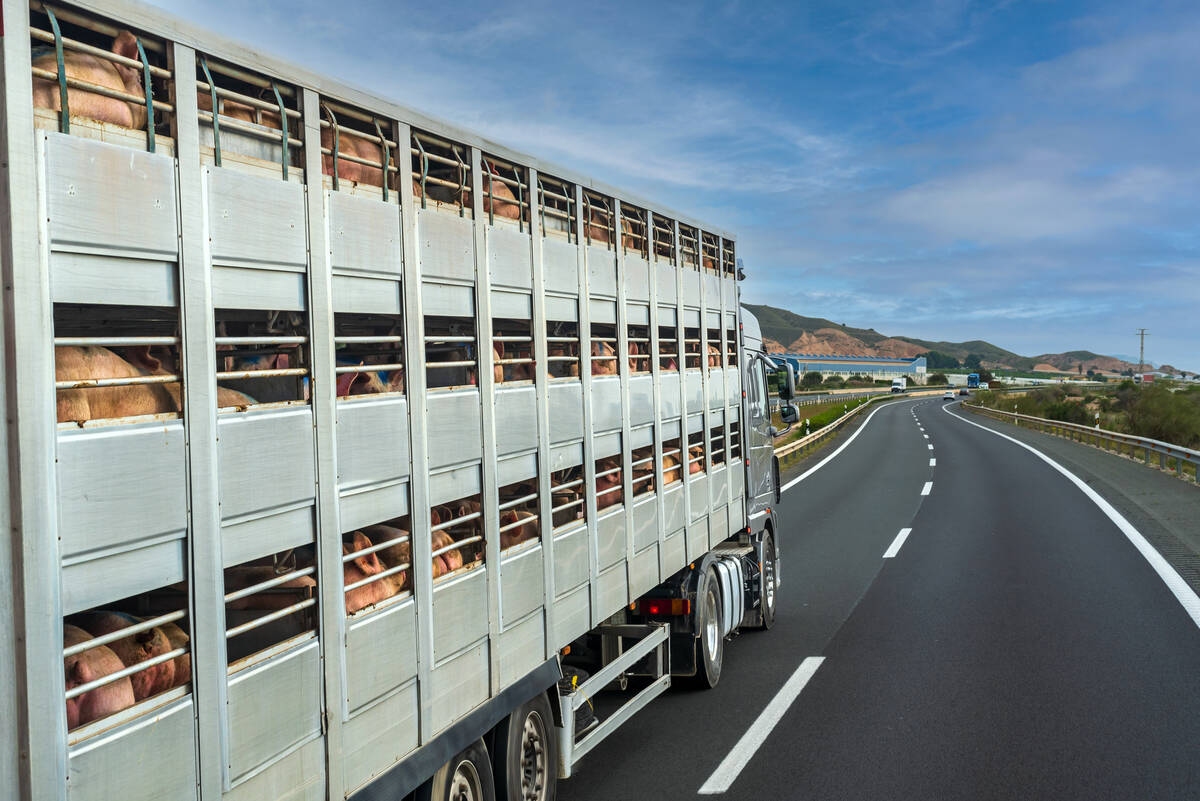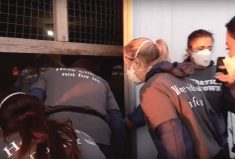A farm couple from the Rural Municipality of Lorne faces multiple charges of animal cruelty in what authorities call one of the worst cases of livestock abuse they have ever seen.
Martin and Dolores Grenier have been accused of 23 counts under the provincial Animal Care Act after more than 2,000 pigs were found starving in a barn near Notre Dame de Lourdes last June.
According to court documents, nearly 400 pigs were dead or dying and another 2,060 were without food and water.
The charges against the Greniers fall into three categories: failure to provide food, water and proper shelter; failure to maintain the facility, allowing the animals to become injured; failure to comply with the hog industry code of practice.
Read Also

Pig transport stress costs pork sector
Popular livestock trailer designs also increase pig stress during transportation, hitting at meat quality, animal welfare and farm profit, Agriculture and Agri-Food Canada researcher says
The documents filed in Manitoba provincial court Nov. 1 paint a horrific picture of the conditions in which the animals were found.
One count described “a slatted floor broken in a way to allow pigs to become trapped and unable to gain freedom.” Another said the broken floor allowed “the pigs to fall through the floor and drown.”
The charges date between May 15 and June 18, 2010. The Greniers are scheduled to appear in court Dec. 16.
The alleged offences occurred before recently proclaimed amendments to the Animal Care Act. As a result, maximum penalties per charge are six months in prison or $5,000, as opposed to the maximum $10,000 fine for a first offence under the revised act.
Manitoba provincial veterinarian Dr. Wayne Lees described the case as one of the most unusual he has ever seen.
“I don’t think I’ve come across a case like this in my 35 years as a veterinarian,” he said.
The barn owned by the Greniers was a custom feeder operation for pigs owned by a nearby Hutterite colony. Industry officials say the Hutterites became suspicious when they noticed no feed was being delivered to the barn. They inquired about it but were denied access. They went down themselves and alerted authorities after seeing what was inside.
The RCMP and the provincial veterinarian’s office attended the scene. Some animals were euthanized on site. About 2,000 animals fit to travel were transported to another location for care.
Lees would not go into details but said the feeding, watering and ventilation systems in the barn were not working, which led to the deteriorating conditions.
Five days after the intervention, the barn caught fire and burned down in the middle of the night. The Manitoba fire commissioner’s office calls the fire suspicious. An RCMP investigation into it continues.
Lees called the case extremely disturbing for other pig farmers and the industry in general.
“The vast majority of producers really do care for their animals and they want to look after their well-being and their welfare. And they do a pretty good job. So when you get something like this, it’s absolutely devastating for all involved.”
Some animal welfare activists call the incident an indictment of intensive confined hog production systems.
But Bill McDonald, Winnipeg Humane Society CEO, said housing systems have nothing to do with this particular case.
“This was a rogue individual who just went completely off the map in treating these animals this way.”
But McDonald said WHS will continue campaigning for straw-based housing systems for pigs and the elimination of gestation stalls for pregnant sows. [email protected]


















